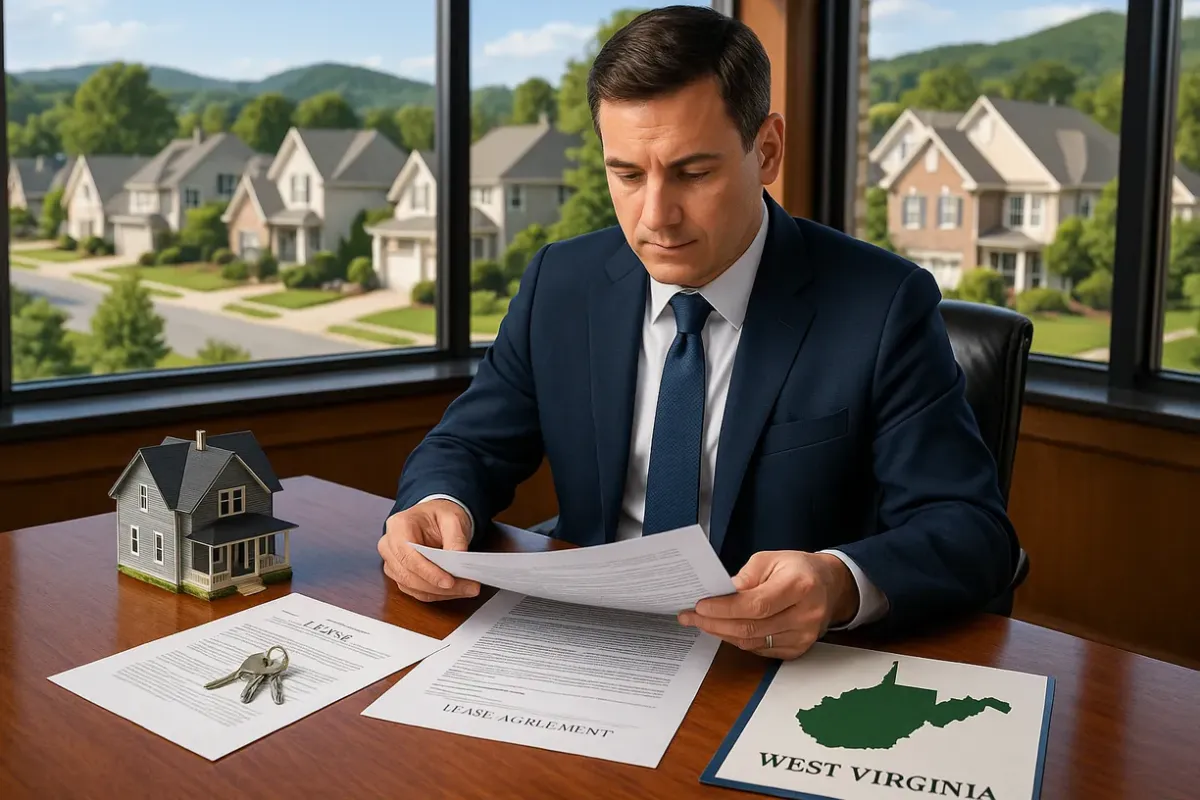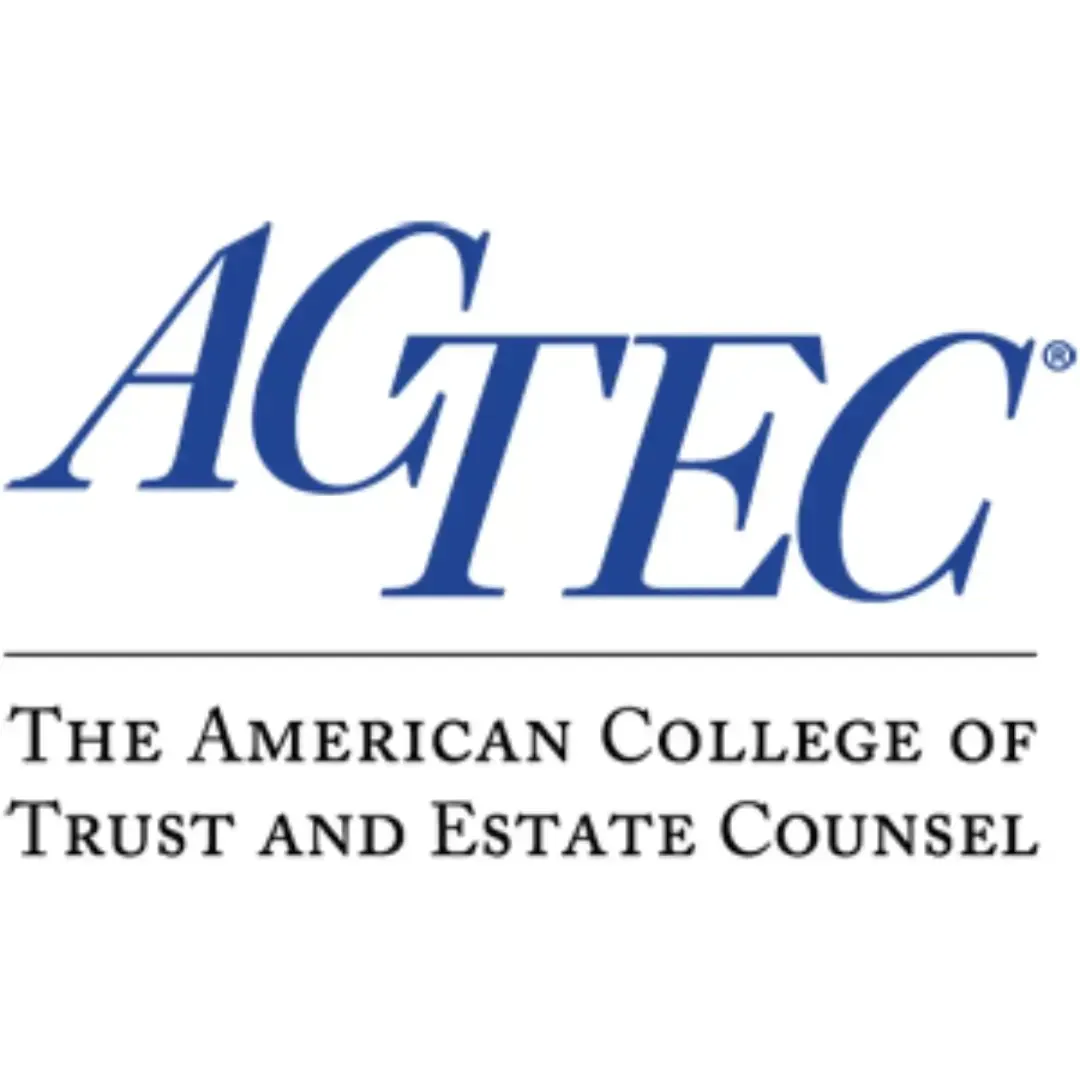
Blogs

Your Guide to West Virginia Residential Real Estate Law
West Virginia Residential Real Estate Law: Essential Guide to Lease Agreements, Property Rights, and Legal Compliance
Understanding West Virginia Residential Real Estate Law
West Virginia residential real estate law encompasses a wide range of legal issues including lease agreements, zoning regulations, title insurance requirements, deed transfers, and regulatory compliance for both residential and commercial property transactions. Unlike laws in neighboring states like Pennsylvania and Ohio, West Virginia real estate laws place a strong emphasis on consumer protection, particularly during real estate sales and purchases involving complex contract negotiations.
Whether you're a first-time homebuyer navigating your initial real estate purchase or managing a sophisticated real estate transaction for a limited liability company (LLC), consulting a knowledgeable real estate attorney or licensed real estate agent early in the process is essential for proper due diligence and risk mitigation. Real estate lawyers in West Virginia provide critical guidance on property law matters, ensuring compliance with state regulations and protecting your investment.
The complexity of West Virginia's real estate laws requires experienced legal counsel to navigate successfully. From title searches and contract reviews to closing procedures and dispute resolution, real estate attorneys serve as essential partners in protecting your property interests and ensuring smooth transactions.
Landlord-Tenant Rights and Lease Agreements in West Virginia
Lease agreements in West Virginia must meet specific legal standards outlined under state real estate laws and property law regulations. Both landlords and tenants have clearly defined responsibilities concerning property condition, maintenance requirements, repairs, and rent payment obligations that are enforced through the state's comprehensive legal framework.
A compliant lease contract—whether fixed-term or month-to-month—should include essential clauses covering rent amount, lease duration, termination conditions, security deposit requirements, and any applicable zoning restrictions that may affect property use. Under West Virginia real estate laws, security deposits are strictly regulated to ensure timely return and complete transparency in fee assessments and deductions.
Landlord-tenant law in West Virginia also addresses commercial property leases, which often involve more complex negotiation processes and specialized contract terms. Real estate attorneys help both landlords and tenants understand their rights and obligations, whether dealing with residential properties, commercial real estate, or condominium associations.
The state's approach to landlord-tenant relationships emphasizes fair dealing and proper disclosure of material information. Real estate lawyers assist clients in drafting comprehensive lease agreements that comply with West Virginia regulations while protecting their business interests and property investments.
Real Estate Transactions and Legal Protections
In every real estate purchase—from condominiums to single-family homes and commercial properties—a qualified real estate attorney can protect your interests by thoroughly reviewing contracts, conducting comprehensive title searches, and ensuring all mortgage documentation, loan agreements, or deed of trust instruments are legally sound and properly executed.
Buyers benefit significantly from obtaining title insurance, which provides essential protection against property law defects, undisclosed liens, ownership disputes, or other title-related issues that could affect their real estate investment. During real estate transactions, experienced lawyers also assess environmental compliance issues, potential product liability risks, and regulatory compliance with West Virginia's housing policies and zoning requirements.
Real estate transaction services include comprehensive contract review, negotiation support, and closing representation. Real estate attorneys work closely with real estate agents, lenders, and title companies to ensure smooth transactions that protect their clients' interests throughout the entire process.
The due diligence process in West Virginia real estate transactions requires careful attention to detail and thorough investigation of all aspects of the property and transaction. Real estate lawyers coordinate with various professionals to identify and address potential issues before they become costly problems.
Deeds, Easements, and Property Ownership
Transferring real property requires the correct legal instruments, such as a warranty deed, special warranty deed, or quitclaim deed, and in some cases, a deed of trust to secure loan obligations. In West Virginia, issues involving eminent domain proceedings, adverse possession claims, or recorded easements may significantly impact property ownership and must be properly disclosed and thoroughly evaluated during the due diligence process.
Differentiating between personal and real property is critical during estate transfers, business asset sales, or construction-related acquisitions—especially for investors, commercial real estate buyers, or limited liability companies seeking to expand their property portfolios. Real estate attorneys provide essential guidance on these complex ownership structures and transfer mechanisms.
Property law in West Virginia recognizes various forms of ownership, including individual ownership, joint tenancy, tenancy in common, and corporate ownership through business entities. Each ownership structure has different legal implications for taxation, liability, and transfer rights that require careful consideration and professional legal advice.
Understanding easement rights, mineral rights, and other property interests is crucial for West Virginia property owners. Real estate lawyers help clients navigate these complex issues and ensure their property rights are properly protected and documented.
Disclosures, Insurance, and Regulatory Compliance
Sellers are legally obligated under West Virginia real estate laws to disclose known material defects, including structural damage, environmental hazards, zoning violations, and any other conditions that could affect the property's value or desirability. These disclosure requirements apply to both residential and commercial property transactions and are strictly enforced by state regulators.
Homeowners insurance, title insurance, and other policy protections shield property owners from unforeseen costs and liability exposure, while experienced real estate attorneys help ensure full regulatory compliance with guidelines established by professional organizations and the West Virginia Bar Association. Insurance considerations are particularly important for commercial properties and investment real estate.
Real estate lawyers assist clients in understanding their insurance options and requirements, including title insurance policies that protect against defects in ownership, liens, or other title issues. Proper insurance coverage is essential for protecting real estate investments and ensuring compliance with lender requirements.
The regulatory landscape for West Virginia real estate continues to evolve, requiring ongoing attention to compliance issues and legal requirements. Real estate attorneys stay current with these changes and help their clients adapt to new regulations and requirements.
Mortgages, Foreclosures, and Debt Resolution
Foreclosure procedures in West Virginia follow strict judicial guidelines designed to protect both lenders and borrowers. Homeowners facing debt challenges, payment delinquency, or disputes over mortgage terms should promptly consult a qualified real estate attorney to explore available legal remedies such as loan modifications, refinancing options, short sales, or other alternatives to foreclosure.
Real estate attorneys can effectively negotiate with lenders, review interest rate terms and loan conditions, and clarify how refinancing arrangements affect existing liens or real estate contracts—providing essential protection and advocacy during financial restructuring processes. These services are particularly valuable for commercial property owners and business entities facing complex debt situations.
The foreclosure process in West Virginia involves multiple steps and strict timelines that must be followed precisely. Real estate lawyers help clients understand their rights and options at each stage of the process, whether they are facing foreclosure or seeking to acquire foreclosed properties.
Debt resolution in real estate contexts often requires sophisticated negotiation skills and deep understanding of both real estate law and commercial law principles. Experienced attorneys provide comprehensive representation throughout these challenging situations.
Disputes, Arbitration, and Legal Remedies
Common disputes in residential and commercial real estate include breach of contract claims, construction defects, boundary disagreements, zoning policy violations, and title conflicts. Whether dealing with adverse possession claims, zoning compliance issues, or complex title disputes, having experienced legal representation is essential for protecting your property rights and business interests.
Alternative Dispute Resolution (ADR) methods such as arbitration and mediation can offer faster, more cost-effective solutions than traditional lawsuits—though some complex cases may still require full litigation in West Virginia courts. Real estate attorneys help clients evaluate their options and choose the most appropriate dispute resolution strategy for their specific situation.
Property disputes can arise from various sources, including contract interpretation disagreements, construction issues, environmental concerns, or regulatory compliance problems. Real estate lawyers provide comprehensive representation in these matters, working to achieve favorable outcomes while minimizing costs and disruption to their clients' business operations.
The litigation process for real estate disputes in West Virginia requires specialized knowledge of property law, court procedures, and evidence requirements. Experienced real estate attorneys provide skilled representation throughout the litigation process when alternative resolution methods are not successful.
Working with Real Estate Professionals and Legal Experts
Choosing a licensed real estate agent, experienced estate lawyer, or established law firm with extensive experience in West Virginia real estate practice ensures a smoother transaction process and better protection of your interests. Real estate attorneys help manage legal filings, coordinate effectively with brokers and other professionals, and provide support for estate planning or trust creation involving real estate assets.
Professional law firms should offer transparent fee structures, convenient online payment portals, and clear contact options through their website to make legal support more accessible and convenient for both individual clients and business entities. This accessibility is particularly important for commercial real estate transactions and ongoing business relationships.
The relationship between real estate attorneys, real estate agents, lenders, and other professionals is crucial for successful transactions. Effective coordination among these professionals helps ensure that all aspects of the transaction are handled properly and efficiently.
Selecting the right legal representation for your real estate needs requires careful consideration of the attorney's experience, reputation, and approach to client service. Real estate lawyers should provide clear communication, responsive service, and comprehensive legal support throughout the transaction process.
Final Considerations and FAQs
When should I contact a West Virginia real estate attorney?
You should consult a qualified real estate attorney at the first sign of a potential real estate transaction, property dispute, or legal concern related to ownership rights, lease agreements, or mortgage obligations. Early legal consultation can prevent costly problems and ensure proper protection of your interests.
How much do real estate legal services typically cost in West Virginia?
Real estate attorneys may charge flat rates for specific services or hourly fees depending on the complexity of the matter—whether it involves contract drafting, comprehensive title searches, dispute resolution, or ongoing legal representation. Fee structures should be discussed clearly during initial consultations.
Can a limited liability company own property in West Virginia?
Yes, a limited liability company can hold title to real property in West Virginia, offering significant asset protection benefits and potential tax advantages for business owners and investors. Experienced legal counsel can assist with entity formation, deed registration, and ongoing compliance requirements for business property ownership.
Where can I find a reputable real estate law firm?
Search for established firms affiliated with the West Virginia Bar Association, with a proven track record in residential real estate, commercial law, and estate planning matters. Look for firms that demonstrate transparency in their policies, maintain strong regulatory compliance standards, and provide user-friendly websites with convenient payment portals and clear contact information.
What information should I provide when requesting legal assistance?
When requesting legal assistance for real estate matters, provide comprehensive information about your situation, including relevant contracts, property documents, correspondence, and any specific concerns or goals you have. This information helps real estate attorneys provide more effective and efficient legal representation.
For comprehensive legal guidance on West Virginia residential real estate law matters, including lease agreements, property transactions, and dispute resolution, contact experienced real estate attorneys who understand the complexities of state property law and can provide the professional representation you need to protect your interests and achieve your goals.
If you're in need of legal help, let's talk.
Our lawyers have many years of experience, and are excited to help you with your case. Whatever your legal needs may be, we can provide the experienced legal representation you require. Let's talk about your case and see how we can help you achieve the best possible outcome. Even in circumstances in which we are unable to represent a person, we can often help find another attorney that can. So make us your first contact.
Get In Touch
Phone Number:
Address
109 Capitol Street Suite 700
Charleston, WV 25301
Assistance Hours
Mon – Fri 9:00am – 5:00pm
Saturday – Sunday CLOSED







